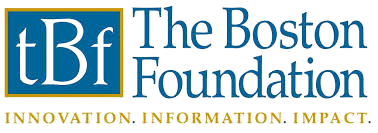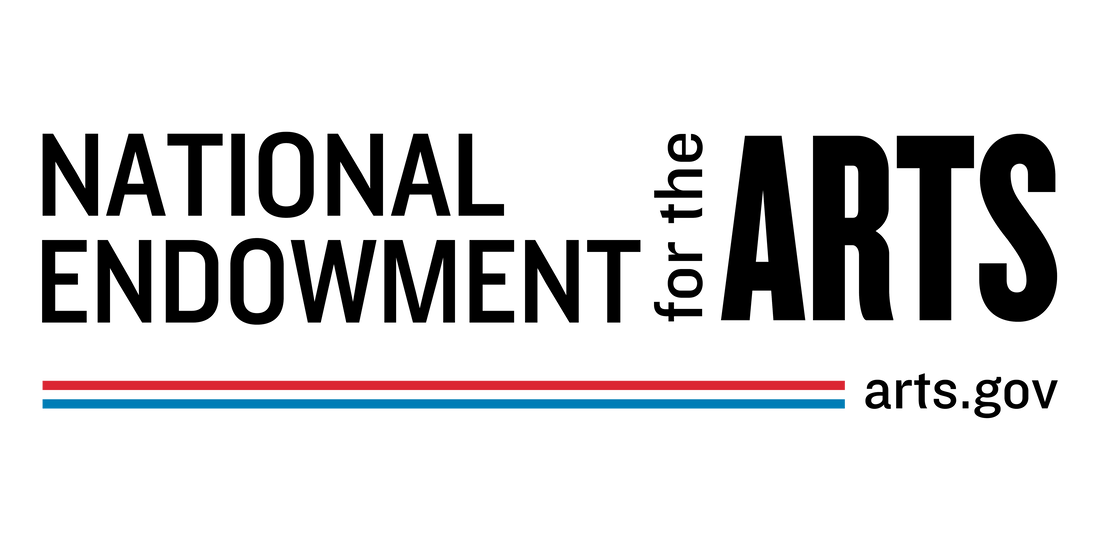|
by Anthony R. Green February 2022 is coming up, and this month in this particular year marks the 121st birthday of Langston Hughes (born 1 February 1901) and the 19th anniversary of an incredible CD celebrating his poetry with spoken word and music. This CD is called Rhapsody in Hughes 101, and it was released in February 2003. You can purchase this album via Apple Music, and it is available on Spotify and other streaming platforms! Who created this celebratory album? None other than a true heroine of our times: Val Gray Ward, who, in August this year, will celebrate her 90th birthday! Age has not slowed her down; Val Gray Ward is still creating, teaching, and inspiring the many generations of Black artists she has come to witness and mother, having recently given virtual performances for students at Wellesley College and also lecturing at the Black Arts Movement School Modality at the Art Institute of Chicago. The legendary Val Gray Ward was born in Mound Bayou, Mississippi - an all-Black town founded in 1887 by former enslaved Black Americans. Throughout her life, she has achieved incredible accomplishments. She founded the Kuumba Theater Company in Chicago, which - among many other things - placed a strong focus on community. In this vein, Kuumba sponsored book parties, poetry readings, exhibits, writing workshops, and also broadcasted films. One unique aspect about their theater practice is that they developed a ritual theater style that induced audience reactions and interactions, another element that strengthened community. Through Kuumba, Val Gray Ward worked with James Baldwin when they staged his profound, semi-autobiographical play The Amen Corner. Kuumba toured with this play, with Val Gray Ward in one of the leading roles, and their tour also included a performance in Lincoln Center's Black Festival USA in 1979. Outside of Kuumba, Val Gray Ward has received acclaim for her solo show titled My Soul is a Witness. In a 2015 interview, she states: "[This show] is my dramatic interpretation of the works of various black writers, such as Gwendolyn Brooks, Richard Wright, Langston Hughes, Nikki Giovanni and Sonia Sanchez. I also perform a segment from The Life of Harriet Tubman which Francis [Ward, my husband] wrote for me many years ago." Her "multiple hats" style of working has resulted in her being the recipient of over 200 awards, including 21 Emmys for her "docutainment" film Precious Memories: Strolling 47th Street. She is known as "The Voice of the Black Writer" and her work has been significantly instrumental to the Black Arts Movement (BAM). Moreover, her lifelong friendships are near and dear to her, and she cherishes the friendships she has (and has had) with Gwendolyn Brooks, James Baldwin, and Nikki Giovanni (with whom she shared an hours long phone conversation recently!). It is impossible to even scratch the surface when it comes to paying tribute to such a phenomenal woman, but it is our strong desire here at Castle of our Skins for you all to read more about her, listen to her interviews, watch and share any related content online, and be enriched and enthusiastic about sharing her legacy! You can start with the following: An appearance on Windy City Live with a short article: CLICK HERE! A fantastic interview archived in the Library of Congress: CLICK HERE! An article about her work with James Baldwin: CLICK HERE! Note: this blog post would not be possible without the help of Dr. Liseli Fitzpatrick, and we thank you for your contribution and generous sharing of such a legend!
2 Comments
by Anthony R. Green Yesterday, I had the pleasure of hosting the incredible L'Merchie Frazier in a talk titled: Rhapsodies: a song for the beloved. This talk was built upon the following description: Utilizing Dr. Martin Luther King Jr.'s poignant thoughts on Black music as a foundation, L'Merchie Frazier will discuss quilting, Black music, Black genius, and more. Through incorporating observations on the relationships between pain, beauty, and passion, Frazier will unearth and articulate the creative moments that often serve as intersections between art, creativity, and life. This blog is a bit of a recap of 4 elements that were evoked during L'Merchie's incredible talk: 1) Dr. MLK Jr.'s essay on Black music; 2) Billy Strayhorn and his iconic work arranging and conducting King fit da Battle of Alabama; 3) Zilpah White and her relationship with Walden Woods; and 4) The example of African agency at Ibo Landing. L'Merchie, towards the early part of her talk, quoted Dr. King's essay on jazz that was featured in the 1964 Berlin Jazz Festival. The bold line from this essay is "This is Triumphant Music." King, in the essay, goes on to talk about various forms of Black music and its role in the lives of Black people as well as people around the world. L'Merchie applies these words to all Black music, irrespective of genre, and linked Dr. King's words to the various roles and purposes that unfold from all Black arts as well. These rhapsodic links set the foundation for the rest of her talk. Fluidly flowing to Billy Strayhorn, L'Merchie mentioned his work as an arranger and conductor for King Fit da Battle of Alabama, a performance that significantly moved Dr. King. While many are familiar with Duke Ellington and Dr. King, L'Merchie shared her observations that Billy Strayhorn is lesser known, but a powerhouse musician. Strayhorn wanted to be a classical composer, but in the mid 1930s, he knew this endeavor would be difficult, and switched to Jazz. Often uncredited or undervalued, Strayhorn is responsible for such hits with and without Ellington as Lush Life, Chelsea Bridge, and Take the 'A' Train. Listen to a performance of King Fit da Battle of Alabama at Boston's own Jordan Hall below (performed by the Boston Children's Chorus): Later in the talk, when discussing how Black textile artists during the times of slavery spun cloth from scratch, and were given scraps which they transformed into the fine art that is quilts, L'Merchie brought forward Zilpah White, a formerly enslaved woman who resided as a lonesome hermit in Walden Woods (and was criticized for it) before Thoreau did the same thing (and was praised for it). Thoreau misspells her name in his recollections (writing Zilpha rather than Zilpah). According to many sources, she brought her spinning talents from the south to Walden, and would spin so long that it worsened her eye sight. You can read more about her HERE and HERE. And lastly, in discussing Black agency and the Black relationship to water, L'Merchie mentioned Ibo Landing. I remember learning about this recently (on Instagram) and immediately thinking about the beloved spiritual Oh, Freedom! In 1803, a ship containing West Africans who were stolen from Africa survived the middle passage journey and landed in Savannah. From this group of stolen Africans, 75 Nigerians were purchased for $100 each to work on St. Simons Island, about a 1.5 hour drive south of Savannah. During the trip from Savannah to St. Simons Island, the enslaved Nigerians captured and drown their purchaser. Upon arrival, the Nigerians refused to be captured and enslaved, so they marched into the water at Ibo Landing and drowned themselves. This powerful piece of history was linked with Phillis Wheatley, who - as a child in West Africa - most likely spoke Wolof, and also survived the dreadful middle passage journey over the waters of the Atlantic Ocean. The Black relationship with water includes the ancestral memories of these trips, and L'Merchie's creative practice, as she states, is deeply involved in memory. I wish I could highlight all of the beautiful elements of L'Merchie's deeply moving talk. These are only a couple of incredible moments from the lecture. Be sure to check out L'Merchie's beautiful artwork on her website HERE, and stay tuned for the video version of Sound & Appliqué in the near future! by Anthony R. Green Do you remember the first time you saw a quilt made by someone you knew or someone close to you or related to you? In this ever-quickening world, are the chances of coming across such things diminishing? Do your chances depend on your geography or the geographical relationships of the people who are close to you and/or within your access? Do your chances depend on the interests and the hobbies of the people who are close to you and/or within your access? Has the internet helped with exposure to quilting traditions? So many questions! When I was growing up in Providence, Rhode Island, I remember one of the church members (who was the wife of a minister and the mother of one of my church friends) headed a quilting project with a group of young girls (I believe they were called AB Girls - American Baptist Girls). She was explaining the process of creating the squares. I remember thinking to myself: wow - the math that is going into this is something I could not imagine! It got me really curious, but with music, homework, and other interests and responsibilities, I never took a journey into the world of quilting as a maker. Now that Castle of our Skins is preparing to present (a slightly altered version of) Sound & Appliqué, it has been such a wonderful journey reading and watching video clips and documentaries about quilting, especially how rich the tradition of quilting is within Black US American traditional textile practices. Believe it or not, this project was conceived in 2018, and THIS BLOG about finding inspiration for new compositions based on quilts from December 2018 is proof! Not only does that particular blog post contain a wealth of information, but there are also quite a bit of informative links to follow as well. For those who'd like to maybe have some inspiration to start quilting, perhaps the video below might provide some good information. Sound & Appliqué will be presented live in Vermont, with a digital talk given by the incredible L'Merchie Frazier, who (on top of many other talents) is an incredible quilter! This project will also be recorded for a digital release later this season. Stay tuned for the details, and enjoy your quilting journey!
by Anthony R. Green
Happy 2022, everyone! As my interest in Black composers of "classical music" increases, I find myself constantly scouring the internet, looking for organizations who promote such composers in myriad ways. In recent searches, I stumbled upon two really wonderful projects who are supporting Black and marginalized voices in major ways. This quick BIBA is to give a shout-out to them! The first is the New Music Initiative for Black Voices. According to their website, they are a is a US "nationwide invitational that aims to celebrate and empower Black composers and their music". Black composers across the US apply to have a relatively new string quartet (composed in 2010 or after) workshopped, read, and recorded by professional string players. As of now, the website implies that this initiative took place in 2021, and there is currently a new cohort for 2022. The website also has the profiles of the string players, their board members (some really fantastic people), and - of course - selected composers (one of which was featured in Castle of our Skins's #BCMC 2.0!!). I hope this initiative continues, and perhaps even changes instrumentations from time to time (string trio, sax quartet, wind quintet, chamber voices, mixed sextet, etc ...). Keep up the good work! The second is the Rising Tide Music Press. This publishing company focuses on publishing "print works by BBIA (Black, Brown, Indigenous, and Asian) musicians in their 10 years of professional-level work as composers and arrangers". Consequently, many young Black composers are featured and supported by this incredible project, and their scores are easily available to purchase (as this is a publishing company!). A great feature of their website is the attention they give to their featured composers. Each composer has their own individual page, and most composers have links to audio or video of the pieces that are available to purchase. In this way, one can hear quite a bit of the incredible music that this company supports, and one can also see watermarked score samples (if interested). Wonderful organization!!!!! If you know any other organizations doing similar work, drop a line! by Anthony R. Green Kwanzaa season is almost over; today's saba (principle) is Kuumba - creativity. Castle of our Skins is thoroughly indebted to creativity, especially Black creativity. Not only do we feature the creativity of Black artists across vast genres and practices, but we also must be creative ourselves in how we present the incredible art and information we come across. What you have seen from COOS is nothing compared to how much we actually want to share - and this is SUCH a good thing! This gives so much for our audiences to find and share on their own, on top of giving COOS quite a bit of fuel for seasons to come. Left: COOS founders with musicians Emerson Sudbury, Kennedy Taylor Dixon, and Corie Rose Soumah;
Right: COOS founders with musician Terence Blanchard at The Met, New York Tomorrow, January first - the first day of the year, is the last day of Kwanzaa. This day's saba is imani - faith. Castle of our Skins has already filled its 9th season with SO MANY NEW THINGS!! 20 world premieres, a new #BCMC, a first ever #BPMC, a new Shirley Graham Du Bois creative-in-residence (and our first significant partnership with a literary artist), 5 new educational partners, 10 new collaborations, and so much more coming in the rest of the season! And next year, Castle of our Skins will celebrate its 10th season, a celebration and a transitional year as Castle of our Skins focuses on becoming a Black arts institution. Tomorrow will be the first day of a new journey for Castle of our Skins - a journey which we cannot truly take without imani. Joyous Kwanzaa and Happy 2022 to all of you! by Anthony R. Green Last week, Castle of our Skins had the honor of hosting the lovely South African composer Dr. Bongani Ndodana-Breen. For this residency at the Longy School of Music of Bard College, Dr. Ndodana-Breen oversaw rehearsals, gave masterclasses, a lecture for the composers, an informal talk for students of the Longy Black Student Union and for students at Project STEP, and was featured in a portrait concert. The portrait concert featured 6 pieces: Two Nguni Dances for piano trio, Intlanzi Yase Mzantsi for piano quintet (world premiere), Apologia at Umzimvubu for string quartet, Khanyisa - an elegy for violin and piano, Impepho for string quartet, and Safika: Three Tales of African Migration for piano quintet. Dr. Bongani Ndodana-Breen answers a question
from Ashleigh Gordon at a Longy BSU event After so long without live chamber music, this concert packed power, a breadth of emotions, and - to paraphrase Dr. Ndodana-Breen - a free trip to Africa through music! Each piece reflected some or multiple aspects of African music practice and praxis, from complex interlocking rhythms and vibrant call-and-response, to a fluidity and omnipresence of structure and a sense of timed timelessness. My personal favorites were the lushness of the Khanyisa and the visceral power of Safika. That said, each work contains worlds of color, texture, and vibrancy that everyone should explore! The performance of each piece was expertly handled by COOS musicians: Gabriella Díaz and Mina Lavcheva (violin), Ashleigh Gordon (viola), Francesa McNeeley (cello), and Sarah Bob (piano). For these talented musicians to figure out such complicated rhythms and perform without a conductor, still maintaining a high sense of musicality and ensemble - this was a feat truly to be witnessed. Missed the concert and want to witness it? No fear! You can still catch the concert's livestream by CLICKING HERE! Enjoy!!! Castle of our Skins is heading into the last leg of our Miniature Festival! For this festival, we featured young students performing pieces from the first iteration of the Black Composer Miniature Challenge (#BCMC 1.0). After those miniatures were presented on our social media, we transitioned into featuring 43 poets for our first ever Black Poetry Miniature Challenge (#BPMC 1.0), curated by our very own Shirley Graham Du Bois Creative-In-Residence Marlanda Dekine - Sapient Soul! What a celebration of diversity, intelligence, depth, introspection, and what an exploration of emotions that was - with such a joyful closing by our very own Marlanda! Nora Edouarzin performed Pholoso by Mokale Koapeng
Starting tomorrow, 19 new works will receive their digital world premiere. These pieces, for any combination of flute(s) and harp, were rehearsed and performed by Orlanda Cela and Charles Overton. Our lovely video recording team created wonderful audio and visual experiences so that everyone can enjoy these miniatures! Check out COOS social media for these videos! They will be revealed daily until December 24th, providing you all with gifts to which you can return whenever you'd like! Happy Holiday Season and enjoy these treasures from Castle of our Skins!
When the pandemic began, I was completely opposed to how my family was handling it. I couldn’t hold space for their needs of having to be around others and pretend everything was going to be okay. Presumably safer in my car, I set up camp and read books, wrote ideas for “the future”, and talked through my past as if I was 82 years old. Feeling ashamed about being back home, I felt I deserved mosquito bites, the prickly grass scratching my ankles, and the people who feasted on my negative self image and ever-widening doubts. I was angry and likely unpleasant to be around.
During one of my many random pandemic outings where I’d drive aimlessly around the South Carolina Lowcountry while listening to Marian Anderson sing “I Am Bound for De Kingdom” or Megan Thee Stallion rap “Cash Sh*t”, my grandma Lizzie, who I’ve never met, visited the wandering forest of my heart and mind. I became curious about her life and why she died suddenly at 54. There were new questions and obsessions stirring inside of me:
I went to the house, where I used to live The grass had grown up and it covered the door Someone across the street Said I know whom you seek But they, they don't live here anymore They are somewhere around the throne of God The field beside my grandma Lizzie’s house used to be a broom grass field that used to be a soybean field that used to be a vegetable field that used to be how my paternal grandparents fed my daddy and his ten siblings. There were cows, chickens, and goats.
Caption: Above is a picture of a part of the family land that was stewarded by my Granddaddy Silas and Grandma Lizzie, including fences painted red, white, and green, an open field, trees, and other neighborhood homes
The field behind the house where my ma grew up went through similar transitions and fed a family of ten. Now, there are beautiful weeds and tall pine and oak trees. *** When my grandma Thelma would meet people for the first time, she wanted to know where they came from. In her Geechee* dialect, she’d ask, “Who yo people is?” Today, I find myself sitting with this question stirring inside of me more than ever before. I moved back home to Plantersville, South Carolina in October 2019, after living in the Upstate area of South Carolina for 15 years. When I came back, I met interesting historians, teachers, and healers. These encounters led me to explore where I come from in ways I had never considered. I was encouraged to intentionally honor the spaces made for me by my direct ancestors, including the dead relatives within my family that I knew personally and the ones I’ve heard about in stories or the names I’ve read on birth and death certificates. It was the first time I began to honor my grandparents’ houses, worksites, foods, favorite smells, songs, and places of leisure. It was the first time I realized how precious it was to have access to these memories and stories as a living history. I approached these spaces (physical and memoried) as if they were museums, holding sacred and important information for my creative existence. According to Merriam-Webster, a museum is “an institution devoted to the procurement, care, study, and display of objects of lasting interest or value”. Personally, I experience institutions as holders of white-supremacist capitalist cis-hetero patriarchal models of worth, production, and perfection, whether BIPOC-led or white-led. But, because the word continues to visit my consciousness, I continue to sit with it. Museum. For me, there will never be enough creative work surrounding the Great Migration, the African-Americans who stayed in the South, and the ongoing work of intergenerational and ancestral healing across the African diaspora. It’s exciting to dig into these questions through writing, even if I never know the answers to them:
*** Want to try a few exercises?
----- * Note: The Gullah Geechee people are descendants of Africans who were enslaved on the rice, indigo and Sea Island cotton plantations of the lower Atlantic coast. Learn more from https://gullahgeecheecorridor.org/thegullahgeechee/
Happy day to all you BIBA readers! I'm cutting to the chase - the beautiful Q&A between BIBA and Marlanda Dekine - Sapient Soul, the current Shirley Graham DuBois Creative-in-Residence with Castle of our Skins! Note: the text is a transcription of the audio answers! Read, listen, enjoy!
BIBA : Please share with our BIBA fans your name, your origin story, and a favorite memory from childhood!
MD-SS : Hello BIBAfans. This is Marlanda Dekine. I am also known as Sapient Soul. I am originally from Plantersville, South Carolina. I was born in Simpsonville, South Carolina. When I was two, my family moved to Nashville, Tennessee. I turned six in Plantersville, South Carolina.
I was born to my mother, Vernetta Ford Dekine, and Tom Andrew Dekine. They grew up within about two miles of one another and went to school together their entire life. I have two twin sisters and a brother. My grandparents, my great-grandparents, and my great-great grandparents are all from Plantersville, South Carolina, on both sides of my family. A favorite memory from childhood for me is actually pretty funny. It's one of defiance now that I sit with it a little bit longer and think about it. We were allowed to play in a hurricane, once, when we were small kids. My father would often open the back and the front door. He’d let the wind of the hurricane kind of sweep through the house. When I was about six (really all through elementary school) my grandparents on my mother's side taught me that when a storm is happening that the Lord is speaking. You're to turn the TV off, turn off all electronics so that you can listen to what the Lord has to say. I think the fact that my dad had us, you know, I don't know how we came to this conclusion that we were going to go outside and play and he was okay with it. But, we were running around out there with the wind carrying us. These moments of water coming up that you didn't expect from just any direction. Um, to be running and playing freely while God was speaking I think was like...looking back...an act of defiance. You know, as a kid, I was kind of afraid because I was an old soul. I was always thinking about safety and whether we were safe, whether other people were safe. I knew all houses didn't have the same structures that could handle a hurricane. I remember having fear, but now that I think about it, it was also like this act of defiance against...against God speaking...just running around, outside, making a joyful noise. BIBA : What moves you the most about poetry and the literary arts?
MD-SS : I think what moves me the most about poetry is the fact that people of all different backgrounds and ages engage with poetry. And while there are academic avenues for poetry and there are ways to make it, um, more so part of your vocation, there are people everywhere every day that are just getting up to write poems and no one's telling them to do that. And sometimes these people read poems out loud and no one's telling them to do that. And these poems have a way of connecting people, um, in surprising ways, uh, across difference, across similarities. I mean, just the idea that you could speak into someone else's experience simply by, um, recalling something that you paid attention to in your own life. Um, whether it's a blade of grass, a moment with ice cream or, um, or a moment of witness of something that's happened in the world and it's connectivity to. And so that's very, very moving for me.
Um, when I think about the literary arts, I think about the way that poetry connects to every other art form and the way that it can, even if it has not. And so it's not strange to imagine poetry alongside dance. It's not strange to imagine poetry alongside music. There's music in language, um, whether there is an actual, um, beat or sound. Um, there is, uh, the fact that individuals with different abilities engage the literary arts. So there is a hard hearing or deaf community that engages. There are blind people that engage. It's just, it is an art form that everyone has access to, and it also touches many other art forms. So it's actually a doorway into the arts...a gateway drug, if you will. (laughs) BIBA : How does music inspire your practice, and what type of music moves you in a way that sparks growth?
MD-SS : Music inspires my practice in a very intimate way. Um, more so than I that I knew or that I kept up with. Um, and what I mean by that is at a young age, my style of writing, um, I’d journal and then I would try to craft what I journaled into Christian hip hop. Um, and I would perform Christian hip hop at church talent shows with my cousin. And so he was, or is, the guy that knows all the current hip hop, especially back then, because I was very sheltered. We both were, but somehow he knew how to find out about what the songs were at the time that our friends or our bullies were listening. (laughs) And, um, what I, what I find amazing when I look back at that is I'm sitting there on Fruity Loops, like the demo Fruity Loops, like the first one that ever came out and I'm making these beats and I'm writing these songs and we're going back and forth to figure out whether it works well. And it's my first practice at collaboration between music and language. I'm not thinking about it that way. We're just having fun.
And, uh, so I have a binder of these Christian hip hop poems from when I was like somewhere between the ages of 9 and 11 or 9 and 12. Um, fast forward to when I'm in college...most of my friends were classical singers. They were learning, um, opera, instrumentation. They were doing, uh, something very intense. I remember being called juried. Like I think, I think they called them juries. Um, and they had to get really, really prepared. They'd disappear for two weeks at a time. And they were always very stressed out and, uh, I was a psychology major, so I was stressed out, but for very different reasons. Um, but I remember them having to, it was, there was a precision that they were being taught to seek after, a precision and a perfection that I wanted no part of. I found it very amazing to witness because I'd watch them hit these marks that were just for me beyond human. Um, but when I think about what it did to them, watching them do that, especially as Black musicians in a PWI, um, I, I know that that was not something I was interested in. What I was interested in was the fact that we were both drawn to what each other was doing. What I was doing, you know, open mics...they're very loose and you can even improv on stage. And if you have a voice and you have the ability to freestyle, you can, you can have a good time on stage and people are going to feel the vibe of what's happening. Sometimes that goes very badly. So I'm not saying that everyone should just get up and riff on stage, but I realized that at this point in my life, it's, it's my knowing what those friends were going through and then when I listen to, when I listen to classical music now, especially from Black folk, or I listen to jazz, a lot of jazz or the blues, um, or even, um, like ambient, electronic instrumentals, uh it's, it's like a film moving through me so that when I'm writing, it's not, I don't think I'm creating a film, but I don't think that's what's happening at all. But that feeling that I have when I'm watching a film, it's in my body and, um. Ah, music invigorates me and I sometimes have to turn it off so that I can write...it can be a distraction for me actually. Um, so usually when I've, you know, say I've submitted something for the day or I've revised something and I'm done for the day, then I turn on music to celebrate.
MD-SS : The music that sparks growth inside of me, I mean, I have to say it's music that is, uh, coming out of the UK from individuals that are of the African diaspora. So like, um, I won't give examples just because they're going to be so...well, maybe that's, maybe that's the point.
Um, so I go back to, um, Marian Anderson is a voice that really encourages me and expands me. Um, Little Simz is a hip-hop artist who I think plays in different soundscapes in a way that I really love. I love their voice. I love the music they make. I love the topics that they, uh, interact with in their, in their music. Um, another, I'd say someone else that maybe stretches me when I'm listening. Absolutely Nina Simone. It's going to be...I, you know, I'm one of those people that I listen to and read a lot of dead people and I’m, I'm trying to do better about, um, listening to contemporary, like what's happening, um, in the contemporary scene, but that's something that I've always done since a kid. That's just something about the old soul, the old soul of me, I will feel connected (laughs) to dead folk. Um, but, uh, yeah those, those are the three that stand out to me right now. Marian Anderson, Little Simz, and Nina Simone. And now I'm wondering the three of them sitting down for a conversation that would be really, really fun to (laughs), uh, to witness. BIBA : Where have you found moments of peace and healing in the world?
MD-SS : I have found moments of peace and healing in the world, in the midst of, um, intense chaos during intentional conversations with people, um, whether they're my family or with close friends, um, or in a, in a space that is being made for the purposes of intentional conversation around something difficult that we're all trying to heal through as people...we're all trying to understand as people. Um, I have found moments of peace and healing by any body of water. Water is very, very peaceful and healing to me. Um, and I would say the same about...not being in a forest cause I haven't gotten that far yet, but that's something that I want to do. Um, forest bathing. Um, but driving through the forest on the back road, um, like driving through old, um, how would you say. I guess I'm thinking of them as old landscapes. They're current landscapes. There where people live now, but they’re historied landscapes and where I'm from that's, I mean, I guess we all have history landscapes, but the way that I see where I'm from, it becomes a bit mythological in a sense that I began to imagine, um, the people of different times that were in the forest or in the field or, um, outside somewhere doing anything. And somehow that brings me immense peace and healing.
BIBA : What advice would you give to people who are wondering how to capture and treasure beauty?
MD-SS : I would encourage people in the same way that I have been encouraged, um, which is to give yourself permission and to allow yourself to go into that child-like space of wondering, to allow yourself to notice and pay attention to things that seem mundane, that seem to no longer have importance to how our days go about, but they are very important. I'm talking about the sound of birds in the morning. I'm talking about the laughter of children. Um, for me the sound of a woodpecker on the catalpa tree in the morning or the blue jays outback, um, these little things that seem like if you stopped to pay attention, it might throw you off from your very important activity, pay attention to those things. I feel like, um, at least in my own experience, because I'm a, you know, my moon is in Capricorn. So when it's time to do something, I put, you know, it's hard work I got to, (laughs)
I've gotten very better, I’ve gotten a lot better at that, but there's been this part of me that, you know, we've also conditioned in this way that, you know, there's hard work to be done. And even as artists you're taught, this is hard work. This is work. You need to treat it as work. And all of that is true, but there's something about work that if we forget that it's beautiful, we are hurting ourselves. And so I am very interested in what it is that is freeing us in the art that we're making. And so in my own work, I've been able to feel myself, become lighter, become more jovial, become, uh, you know, a person that is able to have coffee in the morning without doing eight other things at the same time, because I'm paying attention to the snake plant or because I'm paying attention to my dog. And there's something about even my dog and the things that my dog will pay attention to. There's, there's a beauty in those mundane and simple things, um, that I think an artist ought to capture and treasure. Um, if not for yourself, for someone else. I just think that that is such a gift. And when I think about the land that my family lives on, um, and the pieces that have been left behind by ancestors that have passed on for more than, I mean, I'm talking decades, they've been gone and there are things on the land that their hands touched. There's beauty in that. And I think the more that we are able to treasure and document and archive, um, that type of beauty, I think it, it, it saves us. I think it loves us. I think it gives back to us. by Anthony R. Green BIBA QUICKIE! In just over two weeks, the Center for the Art of Performance (CAP) at the University of California, Los Angeles (UCLA) will host another digital Tune In festival! This year's festival continues CAP UCLA's love of collaboration, and is curated by award-winning performance poet J. Ivy and pianist Lisa Kaplan (of eighth blackbird). The line-up includes a wide variety of musicians and artists, covering a diverse spectrum of genres and expression! For readers who followed my trip to Ghana through BIBA, you'll see one of the fruits of my travels in this digital festival. My video I returned. I wanted to. features music by myself, Liz Gre, and Shannon Sea, a poem by Angelina Weld Grimké, and a traditional hymn. All of these elements work together to explore Blackness and queerness in diaspora, and question the role of Christianity throughout history and race. Additionally, my string quartet Sacred Ground (... we can still feel the tremors ...) will be featured. This piece was commissioned by Chamber Music Tulsa to commemorate the 100th anniversary of the Tulsa Race Massacre, and the outstanding performance by the Thalea String Quartet will be available to watch during this digital festival. There will also be music by Jonathan Bailey Holland, Errollyn Wallen, spoken word, dance, and so much more! Check out the line-up HERE and the promo video below! You'll see me 2 seconds in, playing a pink toy piano ... |
Details
Writings, musings, photos, links, and videos about Black Artistry of ALL varieties!
Feel free to drop a comment or suggestion for posts! Archives
March 2024
|
Member Login
Black concert series and educational programs in Boston and beyond
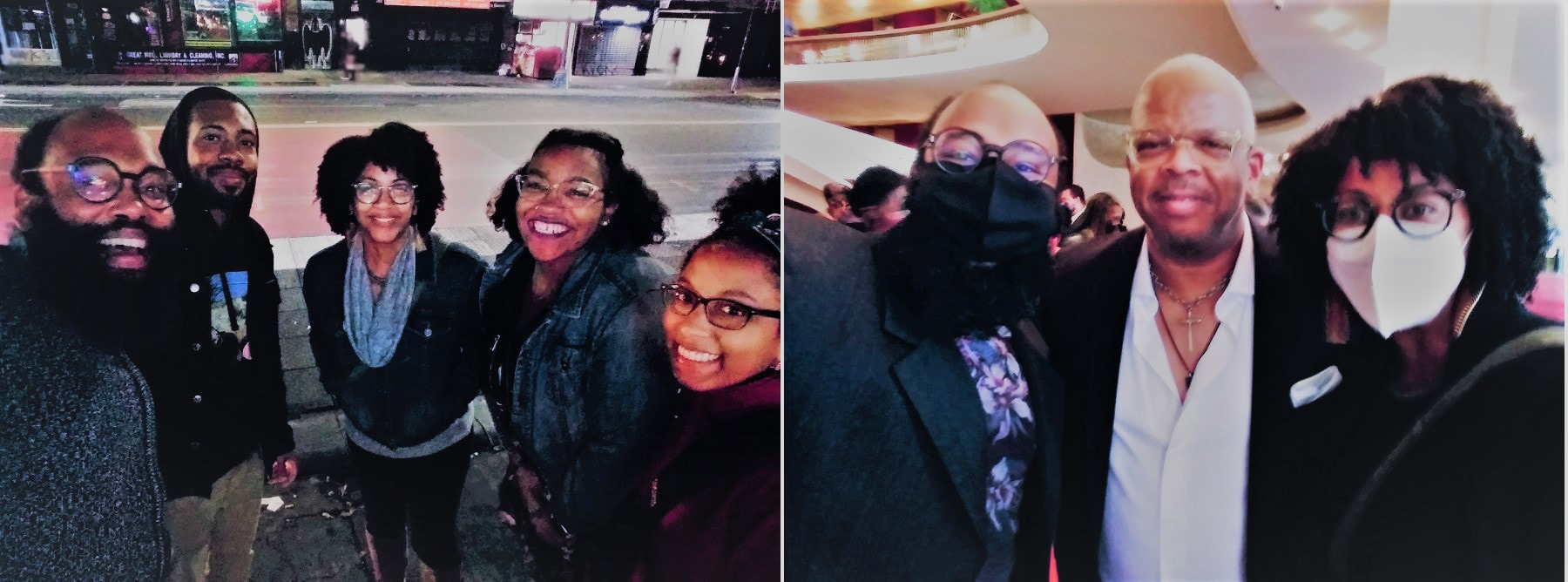
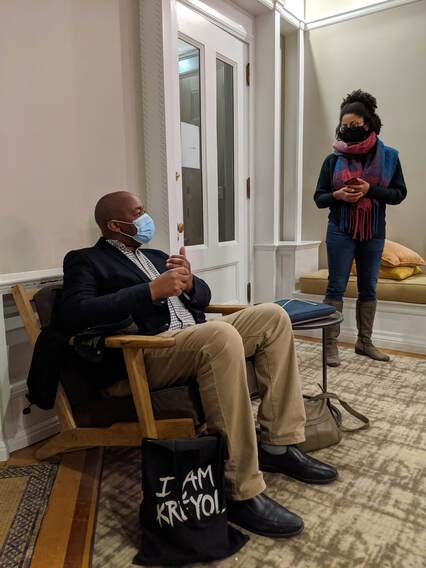

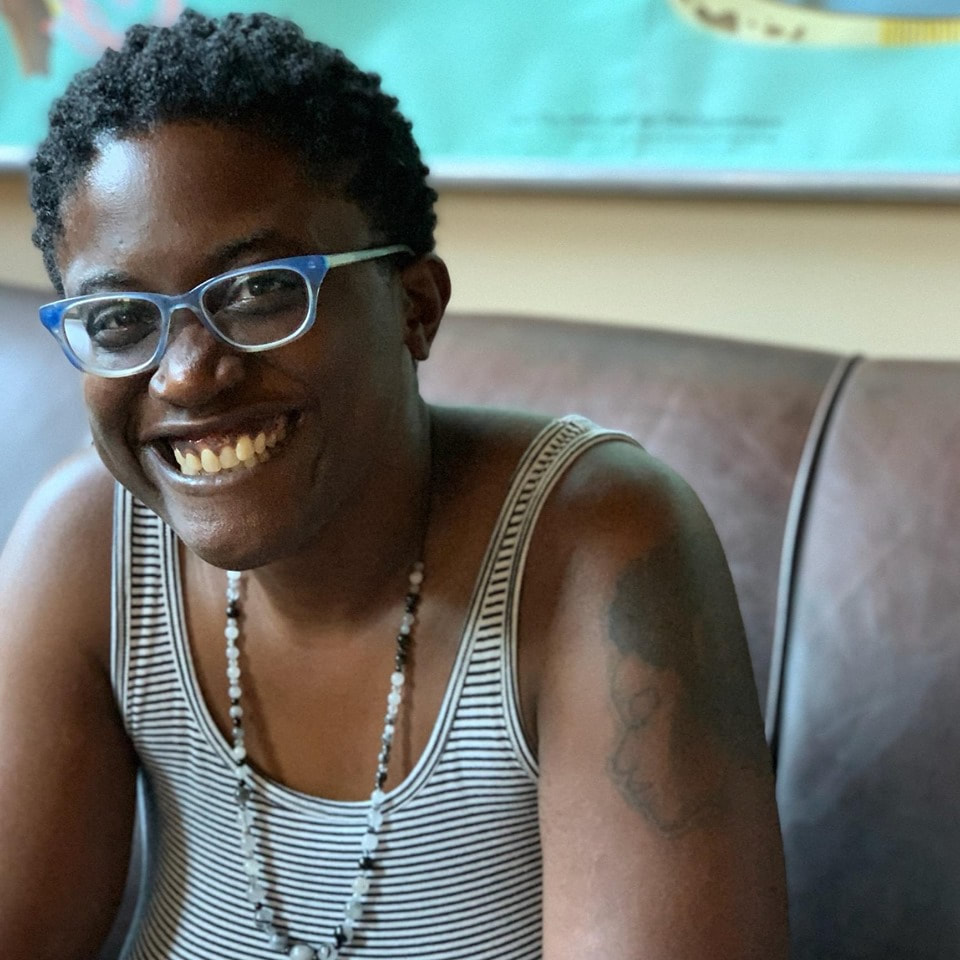

 RSS Feed
RSS Feed


